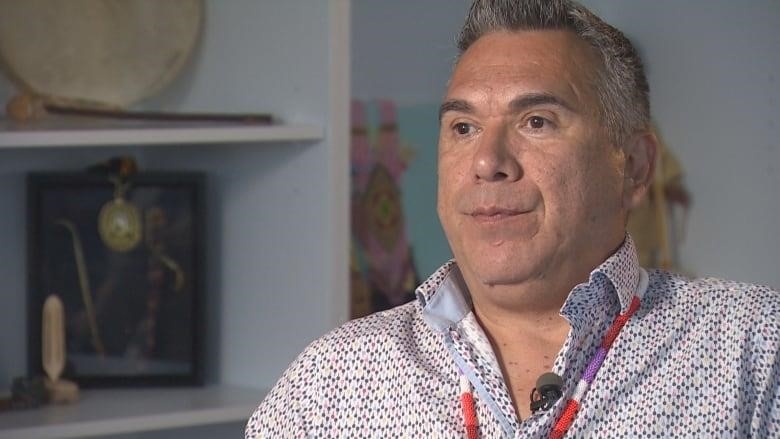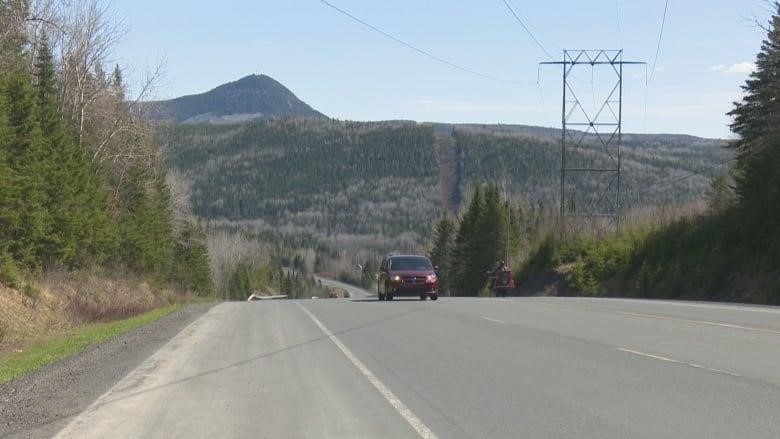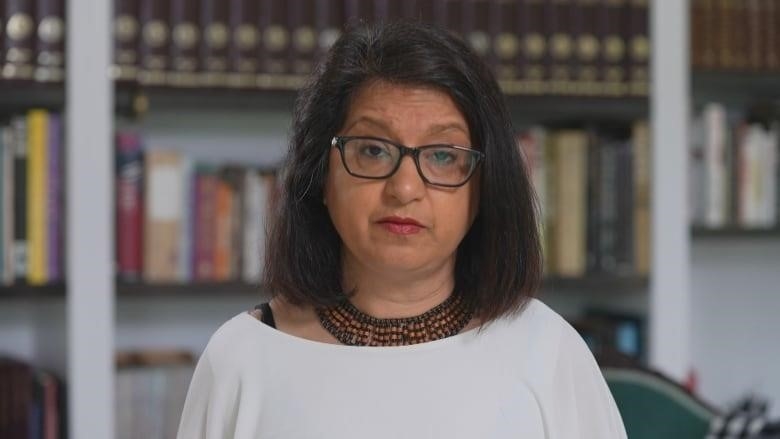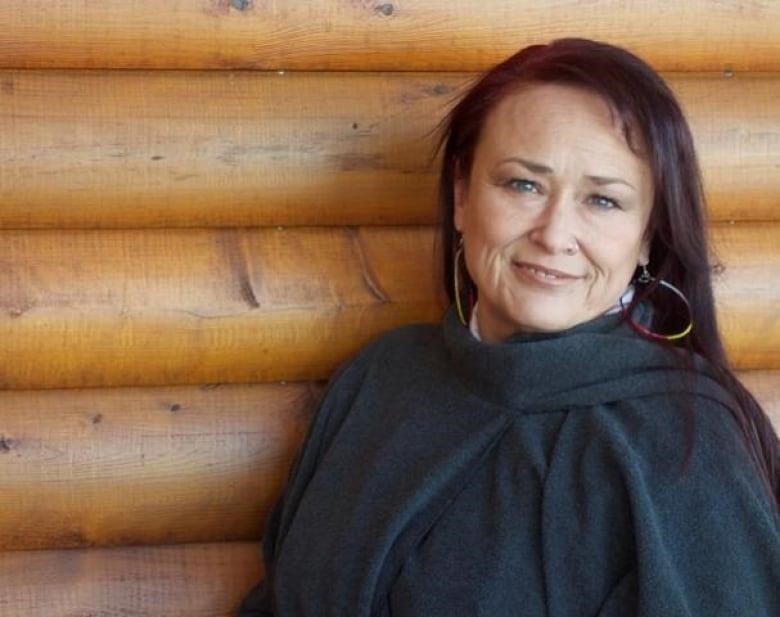
Province says it wants to change offensive place names, but it only has less than $8,000 to do so
Chief Allan Polchies says that when the elders in his community see place names with insulting words, it sets them off.
The Canadian Geographical Names Database says that at least seven places in the province are named after a racist and misogynistic term used against Indigenous women. This is more than any other province or territory.
“Our elders see that, and it upsets them,” Sitansisk Chief Polchies said.
Polchies said, “When your spirit is upset, it doesn’t make you feel very good.””We want to make sure that the names of those places are changed.”
A group that speaks for several communities says that Mi’kmaw leaders have been asking the province to change derogatory names for years.
In 2019, the final report of the National Inquiry into Missing and Murdered Indigenous Women and Girls called on governments to make it a priority to end “the social, economic, cultural, and political marginalization of Indigenous women, girls, and 2SLGBTQQIA people when developing budgets and deciding government activities and priorities.”
Manju Varma, who used to be New Brunswick’s systemic racism commissioner, brought up the issue of place names that use racist language again in her report from December 2022. She wrote that it made her sad that she had to ask again, since the province had already been told about the problem.
Varma wrote in the report, “It is hard to believe that dealing with racism is a top priority when issues of overt racism are not dealt with right away.”

But so far, the province has only changed the names of two places in Restigouche County. This spring, it asked for ideas for new names for a town and a mountain.
Even though the provincial government said that renaming places with offensive names was a “priority,” the Department of Tourism, Heritage, and Culture only has a little more than $7,800 budgeted for renaming places this fiscal year, according to briefing materials that were obtained through access to information.
“It’s really shameful,” Varma told CBC News. “There’s not much else to say about it.”
A review holds up the renaming of a community in Saint Joh
No one from the provincial government was available for an interview about why all of the places haven’t been renamed yet.
In a statement, a government spokesperson said that “the public and First Nations leadership” said that the places in Restigouche County should be renamed first. However, the spokesperson didn’t give any proof that someone asked for one place to be changed before the others.
“Government is committed to renaming the remaining places with the same name or other insulting words,” wrote spokesperson Leigh Watson. She didn’t say when that might happen.
In an April briefing note from the Department of Tourism, Heritage, and Culture, it says that the provincial government’s approach to naming places is “decentralized,” meaning that different departments are in charge of different parts of the process.
WATCH | How New Brunswick’s offensive place names hurt:
Varma’s report says that this process has been looked at by the province for more than two years.
This review also seems to be holding up the City of Saint John’s plans to rename a community that uses “outdated and offensive terminology” against Indigenous people.
More than two years ago, the city council voted to move forward with the renaming. However, a city spokesperson says the city was told that the province’s archaeology and heritage branch is in charge of place names, so the city will have to wait until the review is done.
Erin White, a spokesperson for the City of Saint John, wrote, “We continue to talk with the province to find out timelines and requirements for moving forward with the renaming process. We will be ready to submit any information that may be needed once the process is finished.”
‘Why would you wait?
In its statement, the provincial government says that when examining a place name, “historians, ethnohistorians, language experts, and traditional knowledge holders” must be consulted.
“In order to take into account the needs and expectations of all New Brunswickers, the process requires attention to detail. This means that each name needs to be looked at separately, instead of trying to change all derogatory place names at once, especially those with similar names,” Watson wrote.
But Varma doesn’t see how that could be done with only $7,800. She would like to see a strong Indigenous presence on a committee that helps choose new names and pays people for their time and knowledge.
She also doesn’t understand why Indigenous communities would be asked to choose which name to change first.
“If there are places in your country that insult, offend, and cause trauma to your people, why wouldn’t you change them right away? Why do you want to wait?”

Even though the Wolastoqey Nation has asked for years for the name of the St. John River to be changed back to its original name, Wolastoq, the government seems to be against it.
- A cabinet minister says that there are “no plans” to change the name of the St. John River to Wolastoq.
“I think the government likes to hold on to these things so they can use them as a bargaining chip with Indigenous people, but we don’t negotiate names,” said Polchies.
In 2017, many names were changed
Lauren Beck, a professor at Mount Allison University who wrote a book with the same title, says that most offensive place names were made by white men.How to change the names of places in Canada.
Beck said that Indigenous people and other racialized people do most of the work to change the names of these places.
She said, “There doesn’t seem to be much of a payoff for the time and thought that might come from an Indigenous community when asked what this offensive name, this elevation, should be called.”
She talked about how, a few years ago, the Black History Society of New Brunswick tried to change the names of a few places in the province that had racist or offensive words in them.
Ralph Thomas, who is in charge of the society, said that his group and PRUDE Inc., a non-profit in Saint John that works on education and cultural diversity programs, did research to learn about Black history in those communities. In one town, a woman had tried for about 30 years to get the name changed, but to no avail.
A government news release says that in 2017, five places got new names after the government put more than $100,000 into the project.
After his group got involved, “I think the steps were done exactly the way they should have been,” Thomas said.
Putting back the original names is part of making peace
Tracy Cloud, who is the director of trilateral negotiations for Mi’gmawe’l Tplu’taqnn Inc., or MTI, an organization that represents several Mi’kmaw communities, says that restoring Mi’kmaw place names is an important part of “reconciliation and the revitalization of the language, the culture, and really restoring the connections to the territory.”
But she said that MTI’s efforts to get old place names back haven’t led to much.

In March 2022, Cloud sent a letter to the province’s heritage and archeological services branch as part of a review of place names by the government. It talks about how taking away Mi’kmaw place names was “part of an effort to erase our history and deny our connection to the lands and waters.”
The letter says, “Any process to restore Indigenous place names must be led by Indigenous people and not just by the Crown while the Mi’gmaq are consulted.”
She said that more recently, MTI has been talking to elders and people who know about things to put together a plan for new names for places in Restigouche County.
The group is making sure that its proposed name honors the cultural history of the site and is confirmed by oral historians and other experts. Once this is done, it plans to send a proposal to the province.
“But there’s no guarantee,” Cloud replied.
“It’s disappointing that we don’t know how much weight our suggestion will have.”
